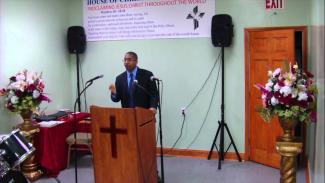How does one reach powerful and influential people? Are they beyond help? What did Jesus do when He witnessed to powerful people? How did the disciples witness to them during the 1st century. This lesson explores what God teaches about witnessing to people in authority. What should be the Christian's approach to authority in general?
All Video Media
Choose from all Inspirited Network programming or select a topic from the menu.This week we talk about the rich and famous! Are they impossible to reach? Are rich and famous people outside the possibility of salvation? How can the rich and famous be discipled? How does a Christian witness to them? Is it even possible? Throughout the Bible there have been examples of rich and famous people. Wealth and status, of themselves, are not evil things. Often, it's the misuse that leads to spiritual problems which hinder salvation. What the Bible teaches on this subject may surprise you.
What kinds of people did Jesus reach out to? How do we define "social outcasts". Does God expect us to reach out to the poor, the imprisoned, the mentally ill, and those with diseases? What does the example of Jesus show us in scripture, and what does this example mean for Christians today? How should the church relate to sinners? These questions are explored in this week's lesson.
How did Jesus go about making a difference in the lives of ordinary people? What does scripture tell us about how Jesus, Himself, grew up? What message might this hold for Christians today? How can we disciple everyday, ordinary people? We explore these questions in this week's broadcast. Jesus taught that every human being has value in the eyes of God. Do we recognize that as we come in contact with people whom Jesus died for?
This week we study the essence of the Great Controversy over God's character. Why is God on trial? Why does God need to vindicate His character to anyone? What were Satan's lies about God and how has God chosen to respond? God created beings that are free moral agents. What does this say about His government as king of the Universe? Can there truly be a merger of justice and love? If God was only love, or only justice, what would that mean for us?
God has a special message proclaimed through His end time people. A message of warning about His judgment. Does God's judgment take place before or after the second coming? How does God know whom to give His reward to? What is this special warning message that must go to all the world? What does it have to do with the investigative phase of the final judgment? Why is it that only the Church gets judged? What will happen to the wicked? These questions and more are explored in this week's lesson.












